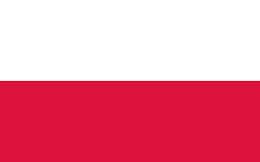Transforming South African Energy Landscape: The Rise of Solar Thermal Solutions
- brg_news_room
- Mar 26, 2025
- 4 min read
Updated: Jul 1, 2025
South Africa's ongoing load shedding crisis, marked by frequent power cuts lasting up to 10 hours a day, has severely impacted industrial production, causing operational delays, reduced output, and soaring costs. As a result, electricity prices have risen sharply, making energy unaffordable for many consumers. This has spurred a significant shift toward renewable energy solutions, particularly solar thermal installations, as people seek more energy-efficient technologies. Government incentives and programs further support this transition, positioning solar thermal energy as a critical response to the escalating energy crisis and a means to safeguard the country’s economic stability.

Source: Statistics South Africa
Mitigation Efforts by the Government
In response to the energy crisis, President Cyril Ramaphosa's 2022 action plan included efforts to strengthen Eskom’s capacity, increase private-sector investment in power generation, and expand renewable energy projects. Through the Renewable Energy Independent Power Producer Procurement (REIPPP) programme, the government aims to add 9,000 MW of solar and wind energy by the end of 2025. Private companies, such as MTN, have invested heavily in backup power solutions to cope with load shedding.
South Africa incorporated approximately 1.1 GW of solar energy into its grid in 2024. While this figure is less than the 2.6 GW added in 2023, it still represents the majority of new capacity added across Africa in 2024. Investment in energy production is expected to increase, which could help alleviate some of the country’s energy constraints, with the integration of more renewable energy projects. Fully resolving the load shedding crisis may take up to five years, depending on the successful integration of solar and wind capacity. These mitigation efforts are critical for the long-term growth of the solar thermal market, which depends on the stabilization of South Africa’s energy supply and industrial output.
The South African Solar Thermal Market
The solar thermal market in South Africa is developing and one of the largest markets for solar thermal installations in Africa, although it remains a small market in terms of the number of systems installed on a yearly basis. Thanks to the presence of local manufacturers and to policies encouraging the installation of solar thermal water heating on a yearly basis.
The South African water heating market has encountered several challenges in recent years, with the ongoing energy crisis pushing consumers toward alternative conventional energy solutions. The demand for solar water heating systems surged as electricity and gas costs soared, and government initiatives such as the REIPPP programme provided additional support. Solar thermal products, including flat plate collectors, vacuum tube collectors, and thermosyphon tanks, witnessed a significant decline yet continued to see strong adoption in 2023 as homeowners and businesses sought to minimize their reliance on the grid.
Moreover, the implementation of the Carbon Border Adjustment Mechanism (CBAM) and carbon taxes introduced in 2019 has further pressured energy-intensive industries in South Africa, a country known for its high electricity consumption and carbon emissions. Rising energy costs have intensified the broader shift towards more sustainable heating solutions particularly in the residential and commercial sectors, where solar water heaters are gaining traction. However, the lack of a national subsidy scheme for solar water heaters has probably limited the full potential of solar adoption despite these positive trends.
In contrast, traditional electric water heaters experience a decline in sales as power cuts render them less attractive. Similarly, gas water heaters, while initially seen as a cost-effective solution, also witnessed reduced demand due to rising gas prices. Consumers increasingly favor solar thermal systems, which provide long-term cost benefits and are less affected by load shedding.
In 2024, large-scale installations in the commercial solar thermal segment have become more lucrative due to the significant growth in hotel developments. The tourism industry’s gradual growth has sparked renewed interest in solar thermal systems for water heating in hotels and other commercial spaces. Despite the slow pace of new commercial construction, solar thermal installations continued to grow in areas with high energy demand and rising operational costs.

Forecast
The future outlook for the South African solar thermal market is strong, supported by both government policies and rising economic pressures. The National Development Plan 2030, with its ambitious goal of installing three million solar water heaters by 2030, highlights the country's commitment to reducing dependence on fossil fuels and advancing toward cleaner energy solutions. As the CBAM and the escalating carbon tax are placing financial strain on energy-intensive industries and businesses are likely to seek out emission-reducing technologies like solar thermal systems to offset costs and meet regulatory requirements.
South Africa’s abundant solar resources, combined with initiatives like Soltrain-(the South African solar thermal training and demonstration initiative) combined with capacity-building programs backed by the South African government along with Austrian Development Agency, are expected to accelerate the adoption of solar water heaters. This growing demand is anticipated to drive further investment in solar thermal technologies, positioning them as critical in the country's shift toward a sustainable, low-carbon energy future.
Source: Amandeep Singh, BRG Research
To purchase the detailed report, go to our online shop : BRG Air Conditioning Reports
Or for more information please contact us at:
Email: europe@brggroup.com
Tel: + 44 20 8832 7860



